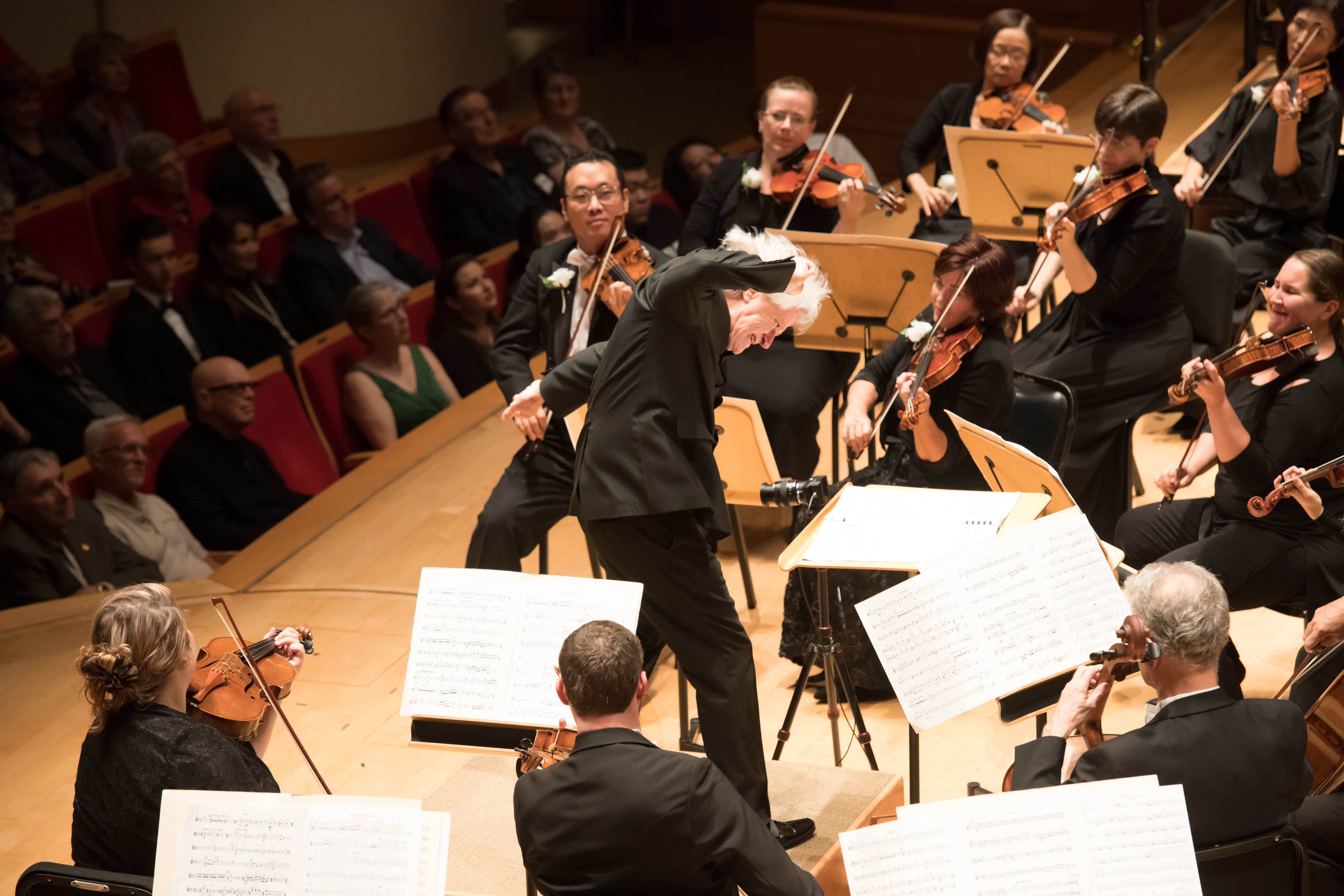Review: Dover Quartet plays ‘Voices of Defiance,’ music of Ullmann, Laks and Shostakovich
By TIMOTHY MANGAN
 Reading the liner notes to the Dover Quartet’s “Voices of Defiance” before I listened to it was probably a mistake. They gave me the impression that the recording would be tough, unpleasant going.
Reading the liner notes to the Dover Quartet’s “Voices of Defiance” before I listened to it was probably a mistake. They gave me the impression that the recording would be tough, unpleasant going.
The three pieces were written in three successive years during World War II. Shostakovich’s String Quartet No. 2, the centerpiece of the disc, in his dark and brooding wartime manner, was composed under the least desperate circumstances of the three, at a Soviet-led artist retreat in Ivanovo.
But Szymon Laks wrote his String Quartet No. 3 shortly after he was freed from Auschwitz, where he survived only because he supplied music for the Nazi guards and prisoners, many on the way to the gas chambers. And Viktor Ullmann composed his String Quartet No. 3 in the Theresienstadt concentration camp. He left the manuscript there with a friend when he found out he was going to be transferred. He was transferred to Auschwitz, where he died in the gas chambers on Oct. 18, 1944.
In his extensive and well written liner notes, Camden Shaw, cellist of the Dover, interprets the music in the light of these and other facts, and rightly so. That is a note writer’s prerogative, even his duty. And I am not suggesting that we not know the stories behind these pieces, or that Shaw’s interpretation of aspects of the music in light of those stories is necessarily way off the mark.
But in the case of the quartets by Ullmann and Laks, I do not think that they can bear the burden of the stories behind them, and I feel it’s an open question what, exactly, the composers meant to express in them.
Less than 15 minutes in length (the second and final movement is less than three), Ullmann’s quartet isn’t expansive enough to express the desperation the composer must have felt when he was writing it. Ullmann’s piece is tightly knit and closely argued, serious and Bartókian, freely dissonant (there are some pseudo 12-tone sections) but basically tonal, ending, in fact, with major chords. “We know we have glimpsed into Ullmann’s great and powerful soul,” Shaw writes of the piece. Perhaps. At any rate, it’s a finely wrought string quartet.
Laks’s Third is, to my ears, a rather cheerful work, Bartók at his sunniest. The themes are Polish folk songs (forbidden at Auschwitz), and “their inclusion here,” writes Shaw, “sends a clear message: he is trying to find his way home.” This may or not be right, but it certainly leads Shaw to read a darkness into the slow movement that I do not hear. He calls it “one of the most impassioned and heartbreaking movements for string quartet.” I hear merely a kind of gorgeous melancholy.
The Shostakovich String Quartet No. 2 is his second longest, in four movements and lasting almost 36 minutes here. It is not encountered much, and its inclusion is most welcome. It is a fine piece, with typical Shostakovichian characteristics, including masterful counterpoint, folk tunes and simple melodies worked up to agitated and dissonant climaxes, and lonely, disenchanted solos. It ends unambiguously in minor.
In all, it’s a great, unhackneyed program, smartly unified and intellectually stimulating. What’s more, it is played beautifully by the Dover Quartet, a young ensemble that has quickly nabbed a spot in the vanguard of string quartets. Its virtuosity is of the type that doesn’t bring undue attention to itself, with warmly singing phrases and unhurried pace and polished tone that isn’t stretched to a breaking point. The pieces are laid out just so, detailed and expressive, and the ensemble breathes together. The recording — on the Cedille label, made in the Rolston Recital Hall at the Banff Centre — is first rate.
***
Here’s the finale of Szymon Laks’s String Quartet No. 3, played by the Dover Quartet.


Belated Hello, Tim.
Just wanted you to know it’s great to see you in print…ANYWHERE.
My friend Mike Vaccaro, a wonderfully talented woodwind player, brought your column to
my attention. You’ve been a boon to music lovers in SoCal for a long time, especially bringing
events and groups to our attention that often may not get mentioned in the LA Times, etc.
Hope to see you at a concert sometime soon. Keep Swingin’.
Gerry Schroeder